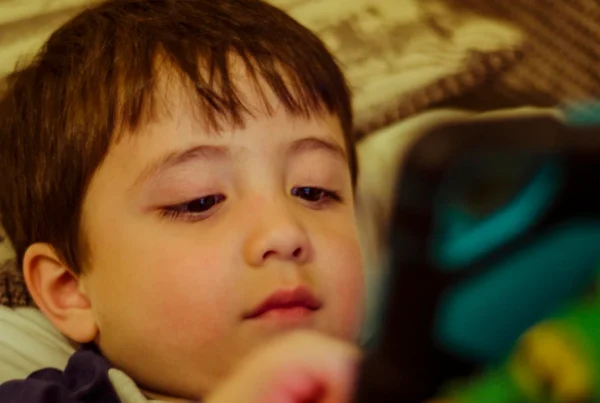It can be argued that one of the most crucial relationships a child can have during their developmental years is the one with their parents. A strong and positive parent-child relationship lays the foundation for a child’s emotional, social, and cognitive development. However, in today’s world, busy parents often struggle to maintain these important connections amidst their hectic schedules.
However, being busy at work should not be an excuse for not carrying out your responsibilities as a parent towards your children. If the relationship between parents and children is not developed, the risk of them becoming rebellious adolescents who cannot be counseled increases.
As time goes by, as a parent, you may even no longer have any influence on their lives. That is why this blog aims to provide practical steps to help parents foster these relationships to ensure long-term benefits for both parents and children, as Ephesians 6:4 reminds us, “Do not exasperate your children; instead, bring them up in the training and instruction of the Lord.”
As parents, we need to build relationships intentionally and set aside time amidst our busy lives so that we can see our children grow well and have true faith in God. Without further ado, let’s take a look at the steps to build good relationships with your children below!
Read also: 5 Tips for Mindful Parenting in the Digital Age: Finding Balance for Your Kids
7 Challenges in Building Relationships with Children
Building strong relationships with children is essential for their growth and development, yet it comes with its own set of challenges. Understanding and addressing these challenges can help parents create a nurturing environment that fosters healthy connections with their children. Here are some common challenges parents face and how they can overcome them to ensure the positive growth of adolescents in the future.
1. Communication Barriers
Effective communication is the cornerstone of any relationship, but it can be particularly challenging with children. Younger children may struggle to articulate their feelings, while adolescents may be more reluctant to share their thoughts. These barriers can lead to misunderstandings and conflicts.
Parents need to create a safe and open environment where children feel comfortable expressing themselves. Active listening, empathy, and patience are key to breaking down these barriers and fostering open communication.
2. Balancing Authority and Friendship
Striking the right balance between being an authoritative figure and a friend is a common challenge for parents. Being too authoritative can lead to rebellion, especially in adolescents, while being too lenient can result in a lack of respect and discipline.
Parents need to set clear boundaries and enforce rules consistently while also being approachable and supportive. This balance helps children feel secure and respected, which is crucial for their development into well-adjusted adolescents.
3. Addressing Individual Needs
Every child is unique, with their own personality, interests, and needs. Understanding and catering to these individual differences can be challenging, especially in a household with multiple children. Parents must recognize and appreciate each child’s uniqueness and provide personalized support and attention.
This approach helps children feel valued and understood, fostering a strong, supportive relationship that will benefit their development as adolescents.
4. Managing Emotional and Behavioral Issues to Maintain Their Mental Health
Children often express their emotions through behavior, which can sometimes be challenging for parents to navigate. Emotional outbursts, tantrums, or withdrawal can indicate underlying issues such as stress, fear, or insecurity.
Parents should observe and identify potential emotional triggers and respond with empathy and support. Instead of reacting with anger or frustration, try to understand the root cause of the behavior. Teach children healthy ways to express and manage their emotions, such as using words to describe their feelings or engaging in calming activities.
5. Navigating External Influences
As children grow, they are increasingly influenced by peers, social media, and other external factors. These influences can affect their behavior, values, and self-esteem, sometimes leading to conflicts with parental values and expectations.
Parents should maintain open communication about the influences their children encounter. You can discuss the values your children should follow, set guidelines for media consumption, and provide a safe space for children to talk about their experiences with peers. Encourage critical thinking and help children understand how to make choices that align with their family’s values.
6. Maintaining Consistency and Routine
Children thrive on consistency and routine, which provide a sense of security and predictability. Inconsistency in rules, expectations, or routines can lead to confusion and anxiety in children.
Establish and maintain consistent routines, such as regular mealtimes, bedtimes, and family activities. Consistent parenting in terms of discipline and rewards helps children understand what is expected of them, fostering a stable and trusting relationship.
7. Encouraging Independence While Providing Support
As children grow, they seek more independence, which can be challenging for parents to navigate. It’s crucial to support this development while ensuring children feel supported and guided.
Encourage children to take on age-appropriate responsibilities, make choices, and learn from their experiences. At the same time, provide guidance and support when needed. This approach helps children build confidence and problem-solving skills while knowing they have a reliable support system in their parents.
The Importance of Positive Parent-Child Relationships
Positive parent-child relationships play a key role in shaping a child’s social and emotional development. When children feel loved and supported, they learn to trust others, show empathy, and build healthy relationships.
In today’s digital world, maintaining this connection takes intention. Screen time and busy routines often get in the way, so parents need to create moments of real interaction through eye contact, active listening, and gentle responses. These small efforts help children feel secure, even when they can’t fully express their emotions.
As Proverbs 22:6 reminds us, “Start children off on the way they should go, and even when they are old they will not turn from it.” Every intentional moment helps shape the path they’ll walk in the future.
Read also: Raising Teenagers: 7 Essential Guide for Parents
4 Steps You Can Do to Build Relationship with Your Children
Building a strong relationship with your children is crucial for their emotional and social development, and it can be achieved through consistent and intentional efforts. But don’t worry too much, these four steps can guide you in nurturing a deep, meaningful bond with your children:
1. Prioritize Quality Time
Set aside dedicated time each day to spend with your child. Even if it’s just 15 minutes, make it a non-negotiable part of your daily routine. This dedicated time could be during dinner, bedtime, or even a short walk together. It’s important that this time is free from distractions, such as phones or work-related interruptions, so your child feels they have your full attention.
Engaging in meaningful activities that you both enjoy encourages interaction and strengthens your bond. Whether it’s playing board games, reading together, or cooking a meal, these moments create lasting memories and deepen your connection. Additionally, these shared experiences provide opportunities for teaching and learning, fostering an environment where your child feels valued and understood.
2. Communicate Openly and Effectively
Effective communication is key to a healthy parent-child relationship. Practice active listening by showing genuine interest in your child’s thoughts and feelings. Make eye contact, nod in understanding, and provide verbal affirmations that show you are engaged in what they are saying.
Listen without interrupting and validate their emotions, letting them know their voice matters. Phrases like “I understand how you feel” or “That sounds really tough” can go a long way in making your child feel heard and understood.
Encourage open dialogue by creating a safe space where your child feels comfortable sharing their experiences and concerns. This means being non-judgmental and patient, even when your child says something that might be difficult to hear. Ask open-ended questions to foster deeper conversations and build trust.
Instead of questions that can be answered with a simple “yes” or “no,” ask questions like “How did that make you feel?” or “What do you think about that?” This invites your child to share more about their thoughts and emotions, strengthening your connection and understanding of each other.
Refer to the verse James 1:19 on this point: “My dear brothers and sisters, take note of this: Everyone should be quick to listen, slow to speak and slow to become angry.” This can be a reminder on the importance of listening attentively before responding, which is crucial in effective communication with your child.
3. Show Affection and Appreciation
Regularly express love and gratitude to your child. Simple gestures like saying “I love you,” giving hugs, or leaving notes of appreciation can significantly impact your child’s sense of security and self-worth. These small but meaningful actions help your child feel cherished and secure in your affection.
Celebrate their achievements, both big and small, to boost their self-esteem and reinforce positive behavior. Whether they aced a test, finished a challenging project, or simply showed kindness to a friend, acknowledging these moments can have a profound effect on their confidence and motivation.
For parents who may find it challenging to be expressive about their feelings, there are still meaningful ways to show affection and appreciation. Start with small gestures like a pat on the back, or a simple “great job!” to ease into more expressive behaviors. Writing notes or letters can be an effective alternative if verbal expression is difficult, leaving them in places where your child will find them. Remember to incorporate different love languages such as words of affirmations, acts of service, and quality time!
By consistently expressing love and appreciation, you help create a positive self-image in your child. This continuous reinforcement creates an environment where your child feels supported and understood, which is crucial for their emotional development. Furthermore, these expressions of love and gratitude can strengthen your bond, making your child more likely to come to you with their thoughts, feelings, and challenges.
Read also: The Importance of Parenting Education: Parents as Lifelong Learners
4. Enrich Your Parenting Knowledge to Enhance Child Development
Continuously seek to improve your parenting skills by actively engaging in educational resources such as reading books and attending seminars on effective parenting strategies. Educating yourself not only broadens your understanding but also empowers you to handle challenges more effectively and foster a deeper, more meaningful relationship with your child.
Proverbs 22:6 reminds us: “Start children off on the way they should go, and even when they are old they will not turn from it.” By staying informed and proactive, you can adapt to your child’s evolving needs and circumstances with confidence.
Additionally, don’t hesitate to seek professional counseling if needed. Counseling offers a valuable opportunity to gain insights and guidance from trained professionals who specialize in child development and family dynamics. It provides a supportive environment where both you and your child can explore and address challenges, enhancing your ability to navigate difficult situations together. Embracing these resources demonstrates your commitment to continuous growth and ensures you’re equipped to provide the best possible support and guidance for your child’s well-being.
Curious to learn more? Explore our blog page and YouTube channel where we provide a wealth of resources such as parenting articles and two parenting podcast series, Cherish Parenting and Rooted Parenting, to support parents through an array of content focused on parenting strategies, child development, and effective communication to name a few. These resources are curated by experts in the field and are designed to help you navigate the complexities of parenting with confidence and wisdom.
Conclusion
Parents, remember that this journey is a continuous process that requires patience, effort, and love. Prioritizing spending time with them, communicating openly and effectively, showing affection and appreciation, and enriching your parenting knowledge are crucial steps in fostering a positive parent-child relationship. These efforts will yield profound benefits for your child’s emotional, social, and cognitive development.
Incorporating biblical principles should also be the foundation of your parenting journey, coupled with partnering with a school that shares your values and supports you in this journey, ensuring a holistic approach to your child’s development.
To help you foster a better relationship with your children, partner with a school that shares your values and supports you in this journey, ensuring a holistic approach to your child’s development. At Sekolah Pelita Harapan (SPH), we are committed to fostering an environment that nurtures and strengthens the bond between parents and children. Our dedicated staff, comprehensive programs, and community resources are designed to support your family’s growth and well-being.
SPH’s Learning Program also emphasizes character development, academic excellence, and spiritual growth, integrating biblical values into the curriculum. With a focus on personalized learning, collaborative projects, and extracurricular activities, we ensure that each child receives a well-rounded education that aligns with your family’s principles. Want to know more about our learning environment? Learn more about SPH today!











